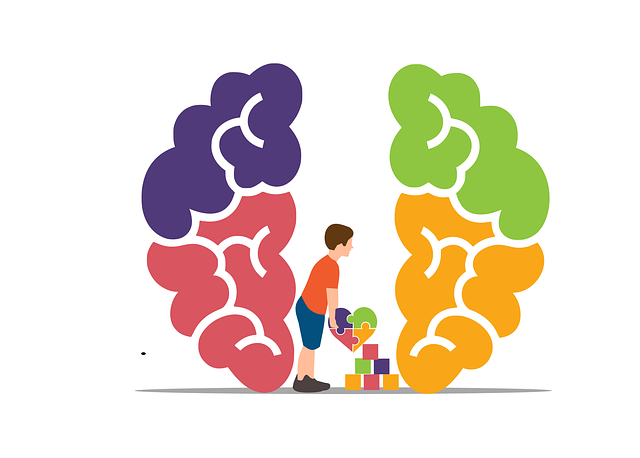Mental health advocacy, led by centers like Northglenn Chronic Illness Therapy, plays a pivotal role in fostering understanding and support within communities. Through education, support groups, and public outreach, advocates empower individuals to take control of their mental well-being. Northglenn Chronic Illness Therapy offers a holistic approach, combining traditional therapy with innovative practices like Mind Over Matter principles and Mental Wellness Journaling. Their comprehensive initiatives, including a podcast series and accessible digital platforms, destigmatize mental illness and provide anxiety relief. By focusing on burnout prevention for professionals and tailored programs for diverse needs, they've successfully created a supportive network facilitating open conversations about mental health.
Mental health advocacy initiatives play a pivotal role in fostering supportive communities. This article delves into the transformative power of such efforts, highlighting key strategies and success stories like Northglenn Chronic Illness Therapy, a pioneering program offering integrated support. We explore understanding mental health advocacy, its profound impact, and effective approaches to enhance well-being. Additionally, we address overcoming barriers, providing insights into challenges and solutions in promoting mental health advocacy on a larger scale.
- Understanding Mental Health Advocacy: Its Role and Impact in Communities
- Northglenn Chronic Illness Therapy: A Case Study on Integrated Support
- Strategies for Effective Mental Health Advocacy Initiatives
- Overcoming Barriers: Challenges and Solutions in Promoting Mental Well-being Advocacy
Understanding Mental Health Advocacy: Its Role and Impact in Communities

Mental health advocacy plays a pivotal role in fostering understanding and support within communities, particularly for individuals dealing with chronic illnesses like those seeking Northglenn Chronic Illness Therapy. It involves raising awareness about mental health issues, challenging stigma, and promoting early intervention and treatment. Advocates work to ensure that everyone has access to the resources and care they need to maintain and improve their mental well-being.
Through various initiatives, such as education programs, support groups, and public outreach, advocacy groups empower individuals to take charge of their mental health. This includes encouraging the development of self-care routines for better mental health and stress reduction methods, ultimately boosting confidence in managing one’s own wellbeing. By fostering an environment where conversations about mental health are open and normalized, these efforts create a supportive network that can transform lives.
Northglenn Chronic Illness Therapy: A Case Study on Integrated Support

Northglenn Chronic Illness Therapy serves as a shining example of integrated support for mental wellness. This initiative combines traditional therapy with innovative practices like Mind Over Matter principles and Mental Wellness Journaling Exercise Guidance to offer holistic care. By integrating these strategies, Northglenn provides a supportive environment where individuals can navigate their chronic illnesses while fostering mental resilience.
The Mental Wellness Podcast Series Production, facilitated by the therapy center, further enhances their commitment to community outreach. These podcasts offer valuable insights and guidance on managing chronic conditions, promoting open conversations around mental health, and encouraging participants to embrace a proactive approach towards their wellness journey. Through these diverse initiatives, Northglenn Chronic Illness Therapy exemplifies comprehensive support for mental health advocacy.
Strategies for Effective Mental Health Advocacy Initiatives

Mental health advocacy initiatives require a multi-faceted approach to be truly effective. First and foremost, Public Awareness Campaigns Development plays a pivotal role in breaking down stigma and promoting understanding. By using accessible platforms and compelling narratives, communities can share stories that reflect the diverse experiences of mental illness, fostering empathy and support. Engaging local influencers or individuals who have overcome challenges themselves can significantly amplify these efforts.
Additionally, prioritizing Burnout Prevention is crucial for advocates. Mental health professionals often face high-stress environments, leading to burnout if unaddressed. Advocating for better working conditions, regular training in self-care practices, and sufficient support systems can ensure these frontline workers remain effective in their roles at places like Northglenn Chronic Illness Therapy. This, in turn, directly contributes to Anxiety Relief within the community by ensuring a stable and compassionate caregiving network.
Overcoming Barriers: Challenges and Solutions in Promoting Mental Well-being Advocacy

Overcoming barriers to mental health advocacy is essential for fostering a supportive environment and promoting well-being in communities. One significant challenge lies in reaching underserved populations, such as individuals with chronic illnesses or those facing socioeconomic hardships. Northglenn Chronic Illness Therapy has successfully navigated these obstacles by offering tailored programs that cater to diverse needs. They provide access to therapy through innovative digital platforms, ensuring accessibility for remote areas.
To enhance advocacy efforts, incorporating practices like mindfulness meditation and self-awareness exercises can be powerful tools. Encouraging individuals to engage in mental wellness journaling exercises provides guidance and a safe space for expression. These strategies not only help break down barriers but also empower people to take charge of their mental health actively. By combining these initiatives with community outreach programs, we can create a network of support that enables open conversations about mental well-being.
Mental health advocacy initiatives, as exemplified by Northglenn Chronic Illness Therapy, play a pivotal role in fostering integrated support and enhancing mental well-being within communities. By understanding the importance of advocacy, employing effective strategies, and overcoming barriers, we can create a more inclusive and supportive environment for those facing mental health challenges. Initiatives like these not only revolutionize access to care but also promote a symphony of resources that cater to diverse needs, ultimately fostering a transformative metamorphosis in mental health support.














